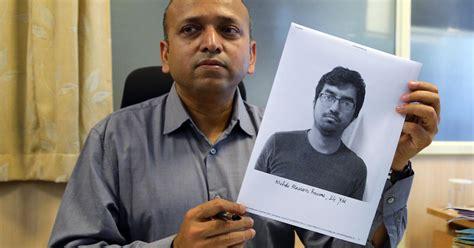
ISIS mouthpiece calls for donations in Monero (XMR): Here is how ISIS funds terrorist activities using cryptocurrency and what FM Sitharaman said about it
Around 3rd October, the Islamic State of Iraq and Syria (ISIS) or Islamic State, released the 29th issue of its propaganda magazine, Voice of Khurasan, published by its media front al-Azaim Foundation. For the first time in this particular magazine’s history, ISIS has called for donations via cryptocurrency using Monero (XMR). The current price of 1 XMR is 149 USD.
Notably, Finance Minister of India Nirmala Sitharaman has warned several times that cryptocurrency is being used for terror funding.
Page 61st of the 62-page issue was dedicated to the call for donations titled ‘Please Donate For Waging Jihad With Wealth’. The magazine further pointed out that the money collected would be used for “financing those who are waging the same [Jihad] with their lives”.
Cryptocurrency and terror funding
It is a well-established fact that extremists and terrorist organisations like ISIS widely use cryptocurrency to raise funds for terror activities. Before 2020, Bitcoin was the first choice of ISIS in virtual money space. However, in 2020, it was reported that they shifted to a lesser-known cryptocurrency, Monero.
Experts believe that the main reason to shift from Bitcoin was that the transactions are Public with Bitcoin. On the other hand, Monero is a privacy coin, which means the information of both the sender and receiver of the transactions will remain anonymous by default. The anonymity linked to Monero has raised concerns, and several countries, including Japan, South Korea, and Australia, have already banned the privacy coins. However, privacy coins remained valid in several countries.
In countries like India, the future of privacy coins is uncertain. As it is evident that terrorist organisations are openly asking for donations via Monero, the Government of India need to bring some rule to ensure privacy coins cannot be used to fund terrorist activities in India.
The technology used by privacy coins is often called ‘mixing‘ as they deploy a third-party service (known as ‘mixer’) to disrupt the connection between the sender and the receiver. It provides anonymity at a large scale, which is problematic, especially when law enforcement agencies want to investigate the transactions.
Notably, the US Internal Revenue Service has already offered a bounty of USD 6,25,000 for anyone who could hack Monero’s privacy protocols.
Social media used to ‘encourage’ pro-ISIS elements to donate Monero coins
In June 2023, the Counter Extremism Project (CEP) found that pro-ISIS elements were trying to purchase phone numbers using Monero cryptocurrency to bypass social media verification. CEP further found that pro-ISIS elements were recommending donating Monero coins to an ISIS propaganda website that contained videos, magazines, articles and other material related to ISIS. They were using VPN and Lokinet, an anonymous onion router, to avoid tracking. TikTok, Twitter and other social media platforms were found to be used by ISIS terrorists to raise funds and spread propaganda.
FM Nirmala Sitharaman raised concerns over the use of cryptocurrency in terror funding
In April 2022, the Finance Minister of India, Nirmala Sitharaman, addressed the Government’s stance on cryptocurrency transactions. The focus was on the potential use of cryptocurrencies in funding terror activities. She emphasized the importance of tracking such transactions to ensure compliance with anti-money laundering regulations and prevent any terror funding support. The Finance Minister also expressed concerns about the global use of un-hosted wallets, highlighting their potential misuse for illicit purposes. She called for a collective international effort to regulate cryptocurrencies, as every case may require a unique approach.
While digital currencies backed by central banks have the potential to enhance cross-border payments, transparency, and efficiency, FM Sitharaman highlighted the need for caution as technology keeps evolving at a swift pace. Regulating cryptocurrencies requires a global approach and a comprehensive understanding of the latest technologies. She added that the Government’s primary role is to monitor cryptocurrency transactions to prevent money laundering and financing of terrorist activities. It does not involve any direct interference in the functioning of cryptocurrencies.
Source » opindia.com





